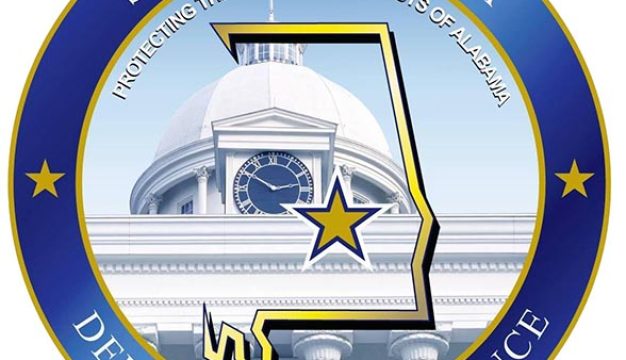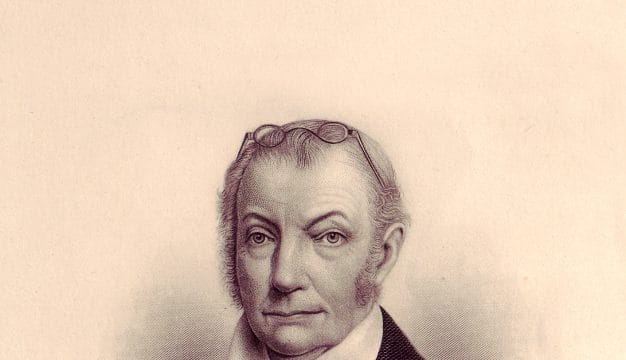Hugh Martin
Hugh Martin (1914-2011) was an acclaimed composer, lyricist, and playwright whose career spanned the golden age of musical theatre and film of the 1940s through 1960s. He is best known for his contribution to the score of the 1944 MGM film Meet Me in St Louis, including the song "Have Yourself a Merry Little Christmas." Martin's work received two Academy Award nominations and four Tony Award nominations.
 Hugh Martin
Hugh Martin was born on August 11, 1914, in Birmingham, Jefferson County, to Hugh and Ellie Gordon Robinson Martin; he had two siblings. Martin Sr. was a well-known architect who designed the Birmingham Public Library, and the family lived in a house he built. Ellie Martin was an accomplished musician who visited New York City frequently to enjoy the city's cultural offerings. She developed her son's musical ability by enrolling him in the Birmingham Conservatory of Music when he was five years old. Martin's mother had encouraged him throughout his childhood to become a classical pianist, but during one of her trips to New York, she had seen a show scored by jazz composer George Gershwin and was enthralled. She imparted her love of Gershwin's music to Hugh, and he changed his career plans to focus on popular music. Lacking any athletic aptitude, Martin also spent much of his time in movie theaters, where he was captivated by Hollywood musicals of the era. After graduating from Birmingham's Phillips High School, Martin entered Birmingham-Southern College. While there, he discovered the music of composer George Gershwin and was inspired to turn his attentions to popular music.
Hugh Martin
Hugh Martin was born on August 11, 1914, in Birmingham, Jefferson County, to Hugh and Ellie Gordon Robinson Martin; he had two siblings. Martin Sr. was a well-known architect who designed the Birmingham Public Library, and the family lived in a house he built. Ellie Martin was an accomplished musician who visited New York City frequently to enjoy the city's cultural offerings. She developed her son's musical ability by enrolling him in the Birmingham Conservatory of Music when he was five years old. Martin's mother had encouraged him throughout his childhood to become a classical pianist, but during one of her trips to New York, she had seen a show scored by jazz composer George Gershwin and was enthralled. She imparted her love of Gershwin's music to Hugh, and he changed his career plans to focus on popular music. Lacking any athletic aptitude, Martin also spent much of his time in movie theaters, where he was captivated by Hollywood musicals of the era. After graduating from Birmingham's Phillips High School, Martin entered Birmingham-Southern College. While there, he discovered the music of composer George Gershwin and was inspired to turn his attentions to popular music.
Martin left college after a year and a half and moved to New York City, where he found work as a vocal arranger and performer. In 1937, he sang in and arranged music for the Broadway revue Hooray for What! While working on the revue, Martin met fellow performer Ralph Blane and they began a long-lasting songwriting collaboration. Blane was born in Broken Arrow, Oklahoma, only 16 days before Martin, and the young pair developed a unique collaboration method. They each wrote music and lyrics to a song independently of each other and then created a final product from both efforts. They agreed to share credit for everything they produced.
In 1938, Martin did the vocal arrangements for "Sing for Your Supper" for the Rodgers and Hart musical The Boys from Syracuse. Martin arranged the vocal parts for four more Broadway shows, including Rodgers and Hart's Too Many Girls (1939) and Cole Porter's Du Barry Was a Lady (1939). He then appeared with his vocal quartet, The Martins, which included Blane, in Irving Berlin's Louisiana Purchase (1940) with Vera Zorina and Victor Moore. The following year, Blane and Martin collaborated on what would be the first show entirely written by them: Best Foot Forward. Produced and directed by George Abbott and starring June Allyson, Tommy Dix, and Nancy Walker in her Broadway debut, it enjoyed a respectable 326 performances and was made into a movie starring Lucille Ball in 1943.
 Hugh Martin, 1964
The film adaptation took Martin and Blane to Hollywood, where MGM next hired them to collaborate on the musical film Meet Me in St Louis, released in 1944. Martin wrote three of the film's most famous songs: "The Boy Next Door," "The Trolley Song," and "Have Yourself a Merry Little Christmas," all sung by Judy Garland. "The Trolley Song" was nominated for an Academy Award for Best Original Song in 1945. Toward the end of World War II, Martin enlisted in the U.S. Army. He was assigned to the European theater but served mostly as an entertainer. He received his second Academy Award nomination for Best Original Song in 1948 for the song "Pass That Peace Pipe," which was written for the MGM film Good News.
Hugh Martin, 1964
The film adaptation took Martin and Blane to Hollywood, where MGM next hired them to collaborate on the musical film Meet Me in St Louis, released in 1944. Martin wrote three of the film's most famous songs: "The Boy Next Door," "The Trolley Song," and "Have Yourself a Merry Little Christmas," all sung by Judy Garland. "The Trolley Song" was nominated for an Academy Award for Best Original Song in 1945. Toward the end of World War II, Martin enlisted in the U.S. Army. He was assigned to the European theater but served mostly as an entertainer. He received his second Academy Award nomination for Best Original Song in 1948 for the song "Pass That Peace Pipe," which was written for the MGM film Good News.
In 1951 and 1952, Martin spent eight months as Judy Garland's piano accompanist in a vaudeville-style show at the Palace Theatre of New York City and developed a close friendship with the star. He also served as actor and singer Eddie Fisher's accompanist at the London Palladium in the United Kingdom. In the late 1950s, Martin reunited with Ralph Blane, and they continued writing songs for theatre and film. During this period, they also recorded an album of their best songs, titled Martin and Blane Sing Martin and Blane.
In 1960, Martin and Timothy Grey, an actor, singer, and vocal coach from Chicago, convinced British playwright Noel Coward to give them the rights to adapt his comedy Blithe Spirit as a musical. While the pair was traveling by ship to England to work on the score, Martin suffered a nervous breakdown and was hospitalized for several weeks upon his arrival. The likely cause of the event was Martin's withdrawal from a ten-year amphetamine addiction. Martin, however, recovered and continued his career. A revival of Martin and Blane's first Broadway show, Best Foot Forward, appeared in 1961 and included a new song called "You Are For Loving." In 1963, Martin and Grey reunited to work on the Coward play, writing the book, music, and lyrics for what would be High Spirits. Premiering in 1964, High Spirits gained Martin Tony Award nominations for Best Musical, Best Author of a Musical, and Best Composer and Lyricist.
In 1974, while visiting family in Birmingham, Martin was hospitalized after a second nervous breakdown and converted to the Seventh-day Adventist Church through the influence of a fellow patient. He relocated to California hoping to be a piano accompanist to Adventist gospel vocalist Del Delker. He would achieve that goal soon after and spent much of the 1980s touring with her. Martin was inducted into the Songwriters Hall of Fame in 1983 and the Alabama Music Hall of Fame in 2001. He received his fourth Tony Award nomination in 1989 for his score to a version of Meet Me in St Louis adapted for the stage. In 2006, Martin was included in a seven-volume Library of Congress series that chronicled classic American songwriters, and he published his memoir, Hugh Martin: The Boy Next Door, in 2010. He died in Encinitas, California, on March 11, 2011.
Additional Resources
Corliss, Richard. "'A Merry Little Christmas': Songwriter Hugh Martin Dies at 96." Time, March 12, 2011.
Martin, Hugh. Hugh Martin: The Boy Next Door. Encinitas, Calif.: Trolley Press, 2010.
Gender, Maridith Walker. "'Such a Lovely Gift': Hugh Martin's Musical Legacy." Alabama Heritage 116 (Spring 2015): 30-39.



